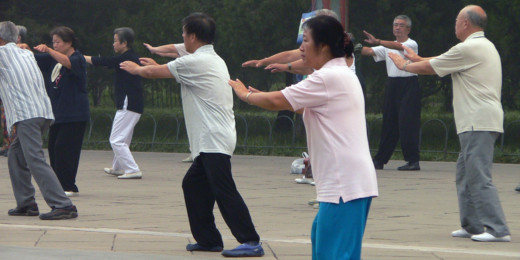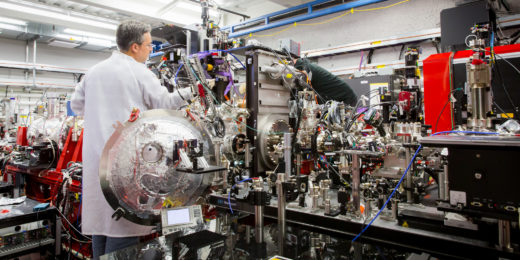Stanford pain specialist argues for comprehensive and personalized treatments as Congress considers legislation to combat the opioid crisis.
Author: Jennifer Huber
Bill for later school start times is defeated, but Stanford sleep specialist isn’t
Despite strong medical evidence, a California bill to delay school start times is defeated. But Stanford sleep specialist Rafael Pelayo isn’t giving up.
Tai chi may help prevent older adults from falling, a study finds
A new study finds tai chi balance training can be more effective than conventional exercise approaches for reducing falls in older adults with a high risk for falling.
Space, the new surgical frontier? A Q&A
A Stanford surgeon discusses the adverse conditions, physiological changes and surgical challenges faced by space travelers.
Stanford psychiatrist focuses on mental health needs of Muslims
Rania Awaad uses her training in psychiatry and Islamic law to address the health needs of Muslims at Stanford and throughout the Bay Area.
Brain’s serotonin system includes multiple, sometimes conflicting, pathways
New Stanford study reveals our brain’s serotonin system is actually composed of multiple parallel subsystems that sometimes act in opposing ways.
Airline crew don’t have significantly elevated risk of thyroid cancer, new study finds
Stanford study finds no evidence of increased thyroid cancer risk in commercial airline crew, despite their increased exposure to cosmic ionizing radiation.
Busting myths about milk
Stanford nutrition scientist Christopher Gardner discusses the many forms of milk and addresses the biggest misconceptions.
Deep brain stimulation might benefit those with severe alcoholism, preliminary studies show
Stanford researchers examine the use of deep brain stimulation therapy to treat alcohol use disorders and reduce relapse rates.
Improving domestic violence screening: A Q&A
NFL cheerleader and Stanford scribe and research coordinator Laurel Sharpless has improved screening for intimate partner violence in primary care clinics.
Wearable device designed to measure cortisol in sweat
Stanford researchers developed a wearable device to measure how much cortisol people produce in their sweat. Cortisol is critical to many physiological processes.
Inaccurate direct-to-consumer raw genetic data can harm patients, new research suggests
Direct-to-consumer raw genetic data can be inaccurate, resulting in harm to patients and unnecessary costs to the health care system, new research suggests.
Stanford data analyst’s childhood inspires his research: A Q&A
Data analyst Jonathan Altamirano discusses living in Nicaragua as a child and how that inspired his current health research at Stanford.
Virtual reality helps train emergency physicians
Stanford uses virtual reality to train emergency physicians, including on how to manage constant interruptions during a patient exam.
Molecular movie observes key biological process — in a trillionth of a second
Researchers have made a molecular movie showing how retinal changes shape when hit by light. Retinal is critical to vision and many other light-driven processes.
Citizen science research investigates neighborhoods’ effects on well-being
Researchers engaged citizen scientists to take photos and collect other data to investigate how neighborhoods can affect health.

















